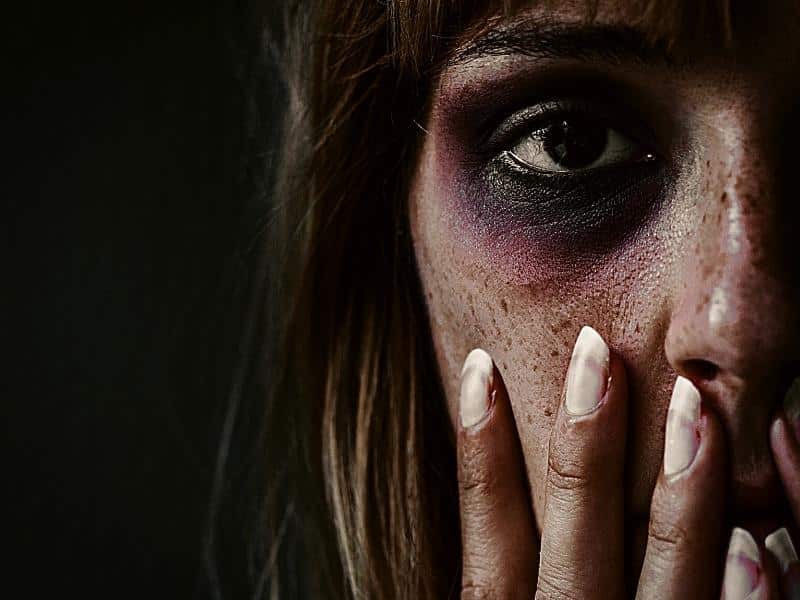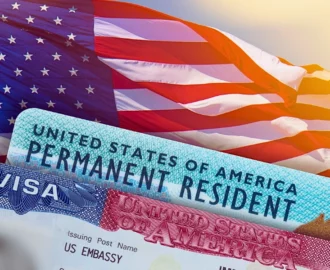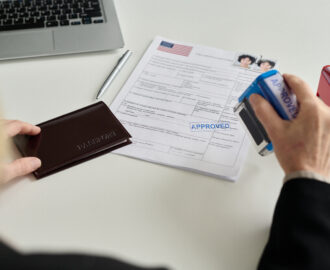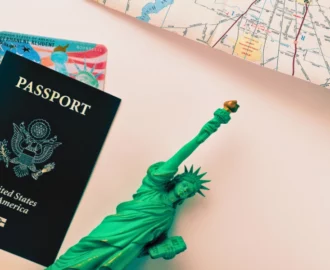If you are a victim of domestic violence and qualify for benefits under the Violence Against Women Act (VAWA), it can take around 16 to 21 months to process a self-petition and recover benefits. How long VAWA takes to be approved depends on factors, including U.S. Citizenship and Immigration Services processing times. VAWA offers unique protections for immigrants who suffer from domestic abuse and are in danger of future abuse.

What Is VAWA?
VAWA, or the Violence Against Women Act, is an act that enables immigrants who are victims of domestic abuse to obtain lawful immigration status when they would otherwise need their abusers for a status change. Congress passed VAWA in 1994.
Ordinarily, individuals need the help of a relative with lawful permanent resident (LPR) status or U.S. citizenship to petition for a change of status. However, with the help of a VAWA self-petition, victims of abuse can bypass this in an attempt to avoid abuse if the petitioner is also the abuser. VAWA can apply to a relative of an abusive petitioner, including the abuser’s spouse, children, or parents.
The goal of VAWA is to give domestic abuse victims certain freedoms to ensure they aren’t dependent on their abusers.
What Is a VAWA Self Petition?
A VAWA self-petition involves applying for a green card through VAWA without the need to go through another petitioner. There are two main steps involved in VAWA self-petitioning: Filing a self-petition with evidence to support the petition and applying for adjustment of status.
When filing a self-petition, you will need to submit Form I-360, which is a Petition for Amerasian, Widow(er), or Special Immigrant. While this form ordinarily comes with a filing fee, you won’t need to pay this if you are an abuse victim.
Once you file your self-petition, you must wait for USCIS to process it. The VAWA visa processing time is typically around a year and a half. Once USCIS approves the self-petition, you can file for a change of status using Form I-485, which is the Application to Register Permanent Residence or Adjust Status.
Determining Eligibility for VAWA
Depending on who is petitioning for VAWA, there are different eligibility requirements. Specifically, the different requirements will depend on whether you are a spouse, child, or parent of an abusive LPR or U.S. citizen.
Requirements for Spouses
Spouses and former spouses of abusers will be able to self-petition for VAWA benefits. They can petition for themselves, along with any of their children who are under the age of 21 and unmarried.
If you’re a spouse or former spouse of an abusive LPR or citizen and want to obtain LPR status or citizenship, you will need to meet the following criteria:
- You are married to an LPR or citizen who is abusive and didn’t marry solely to gain LPR or citizenship status
- Your marriage to the abuser ended due to divorce or death in the last two years
- You have evidence that supports claims that the abuser harmed you or your children
- You lived with your spouse
- You have a clean criminal record that shows you have good moral character
Keep in mind that if your marriage ended in divorce, you will still need to prove the marriage was bona fide. Also, even if your spouse lost his or her green card or citizenship status because of criminal charges involving domestic abuse, you may still be able to self-petition under VAWA as long as you do so within two years of this status change.
Requirements for Children
Some children may need to file a self-petition for VAWA on their own under certain circumstances. Generally, some children have the same requirements as others applying for VAWA. For example, children must have good moral character, have lived with the abuser, and prove that they suffered from battery or extreme cruelty at the hands of the abuser.
Additionally, the child must be able to prove that the parent was a U.S. citizen, LPR, or repatriated immigrant as a result of a criminal charge, pending investigation, or conviction regarding domestic violence. Children also typically must be unmarried and under the age of 21, unless they can show that they were unable to petition for VAWA earlier by the age of 25.
Some qualifications also depend on the child’s age. For instance, children 13 and younger don’t have to prove that they possess good moral character, although children 14 to 21 should be able to show they have a clean criminal record.
Also, children of abusive parents who have children of their own may be able to apply for VAWA on their behalf.
Requirements for Parents
Parents of abusive citizens, LPRs, or repatriated immigrants will need to meet similar criteria to both spouses and children.
Typically, parents of abusive children who wish to apply for VAWA must prove that they lived with the abusive child, experienced battery or extreme cruelty at the hands of the abuser, and prove through a clean criminal record that they possess good moral character.
In addition, parents will need to show that the abusive child is over 21 at the time of application or at the time of the child’s death. If the child has died, the parent must be able to prove that the death occurred within two years of self-petitioning.
Meeting all of these criteria will allow children, spouses, and parents of abusive individuals to gain a more efficient route to LPR or citizenship status without the need for the abusive party’s involvement. This gives individuals the chance to escape their abusers.
Applying for VAWA
If you plan on applying for VAWA, there are certain steps you will need to take.
Hiring an Attorney
One of the best ways to improve your chances of succeeding with a petition is to consult with a VAWA attorney. This attorney will have experience with immigration and be able to guide you through the process. An immigration attorney with experience handling VAWA cases can do much more than help with this process, too—an immigration attorney can help you avoid deportation, inform you of your rights, and prepare for a change of status and other processes.
The next big step will entail filing the aforementioned forms pertaining to VAWA self-petitioning. The first form to file will be Form I-360, which will take several months to process.
Supporting Form I-360 with Other Documentation
In addition to Form I-360, you’ll need to provide USCIS with a written personal statement. This statement allows you to explain your case in depth and clarify any details that might otherwise remain vague. When putting together the narrative in your statement, an attorney will be able to guide you through the process.
Another critical type of document that may help you succeed with your petition is a corroborating statement. This is an additional supporting statement from professionals that can supplement your personal statement and Form I-360. For example, a family therapist working with you or a domestic violence advocate may be able to put together a corroborating statement detailing the nature of your relationship to the abusive spouse, parent, or child. In the process, this statement could help validate the self-petition attempt by further proving the abuse.
While it may be difficult for many to provide significant details of abuse due to the trauma they experience, they can have a counselor, advocate, or another professional include them in the corroborating statement.
Gathering Evidence
A corroborating statement could help support your petition, but you may also want to include additional evidence. This supporting evidence may include any information from social services, medical professionals, or legal professionals who have worked with you.
However, USCIS understands that some evidence from experts may not always be available to abuse victims. This is why USCIS may allow for other types of valid evidence that help support your case. Again, a VAWA lawyer may be able to help collect and organize this evidence and present it along with your self-petition.
How Long VAWA Takes to Be Approved
It’s not easy to determine how long it will take for USCIS to approve VAWA today, as the processing times have undergone multiple changes throughout the years. Generally, it can take anywhere between 16 and 21 months to process a self-petition. You can visit the USCIS website for more information about processing times and determine how long it will take to qualify for VAWA benefits.
After processing, USCIS will check to ensure that each petitioner meets VAWA filing criteria before issuing them a 150-day Prima Facie Determination Notice. While this notice is valid, you’ll be able to receive benefits via VAWA.
What Happens Once USCIS Approves a Self-Petition?
If USCIS chooses to approve your self-petition, there are a few key benefits that you can receive. These include:
Certain Public Benefits
You may qualify for various public benefits under VAWA, including a wide range of economic benefits. For instance, you may be able to enroll in certain benefits programs, federal programs, and health care programs. An attorney may be able to provide more details about the specific benefits you’re eligible to receive through self-petition.
Work Authorization
Another major advantage of self-petitioning is the ability to gain legal employment in the U.S. Specifically, you would be able to obtain an Employment Authorization Document (EAD) that functions as a work permit that enables you to seek and gain employment.
LPR Status
If USCIS chooses to approve your petition through Form I-360, you may be able to become a lawful permanent resident by applying with Form I-485. You would then be able to receive a green card as an LPR if USCIS approves your application. If you want to continue the path to citizenship, this is a critical step to take.
How Does VAWA Cancellation of Removal Work?
Some individuals may suffer abuse under a spouse or another relative while facing deportation. In these cases, you may still be able to apply for VAWA through a cancellation of removal. Taking this step may lead the government to cancel your removal and enable you to become an LPR.
However, this process can be complex and challenging to navigate, which is why it’s often best to work with an attorney. A good immigration attorney can help stop deportation through a VAWA cancellation of removal or other possible means. A lawyer will also indicate whether this is a viable option for you, or if you’ll need to take other steps to avoid deportation.
To qualify for VAWA cancellation of removal, you will need to meet the same criteria as other VAWA self-petitioners. This would entail proving abuse at the hands of a spouse, parent, or child who is a citizen or LPR and showing that you possess good moral character.
If USCIS approves your request for cancellation of removal, the removal process will end. You may then begin seeking LPR status.
Prepare for a Lengthy Approval Process and Increase Your Chances of Success with a VAWA Application
With the help of a VAWA lawyer, you may be able to successfully self-petition with VAWA and get the benefits you need without relying on your abuser. With sufficient preparation, you’ll be able to increase the likelihood of approval and, if USCIS approves your petition, you may be able to become an LPR. The key to succeeding with a VAWA petition is to practice diligence and patience during the petitioning process.




